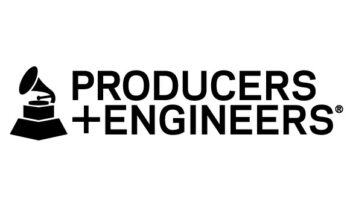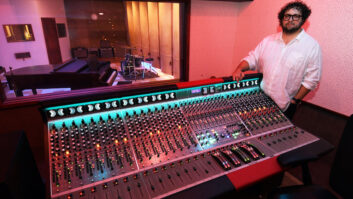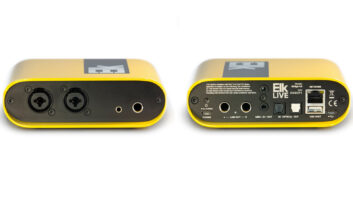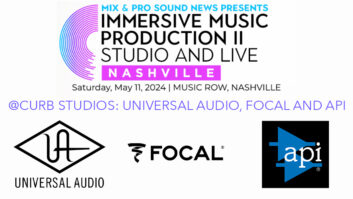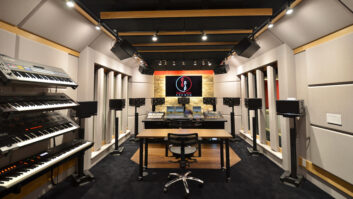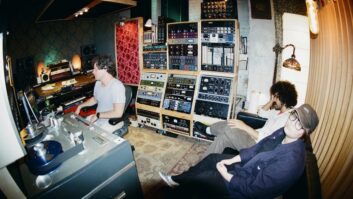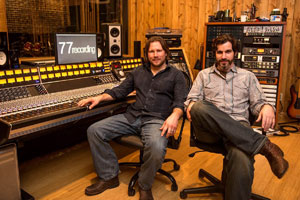
77 Recording owner Brett Mulzer (left) and chief engineer/producer Jimmy Dulin
API in Jessup, Md., reports that 77 Recording in Evansville, Ind., has installed a 48-channel API 1608 analog console with 32-channels of automation. 77 Recording has grown in less than 10 years into a 3,500 square-foot facility located about two hours north of Nashville. Acoustical design for the studio is credited to Haverstick Designs.
The studio hired Nashville-based recording/mixing,/mastering engineer Jimmy Dulin as its chief engineer. 77 Recording’s live studios are complemented by a hybrid analog/digital signal path in the control room. A 24-track Sony MCI JH24 two-inch tape machine interlocks with Pro Tools HD via Endless Analog CLASP synchronization, and the entire rig is now piloted by the API 1608 console.
Owner and recording engineer Brett Mulzer has guided 77 Recording from its roots as a project studio located in a basement to the facility it is today. “When I first started out, I was recording and mixing with little more than a Digi 002 and a computer,” Mulzer says. “After adding some gear to the front end, I ventured outside the box with a summing mixer. I liked the results so well that I purchased a mid-sized analog desk, but ultimately its capabilities were limited and its automation was frustrating and of poor resolution.”
Mulzer explored some alternatives, and he says that the API 1608 jumped out as an obvious candidate. “I wanted a board that was geared toward rock, and API is legendary in that regard. API is especially well known for its drum sound, and drums are our forte at 77 Recording. The live room is huge and warm, and I really wanted to play to that strength. The API 1608 delivers on everything I had hoped for: a classic, aggressive, punchy sound paired with a reliable, modern signal path and excellent automation.” Mulzer noted that the 1608’s automation is of very high resolution and is robust and reliable to implement together with Pro Tools and CLASP.
Mulzer expanded his stock 16-channel API 1608 with two 16-channel expanders because he wants to be able to mix down without having to make submixes in Pro Tools. “I like having a fader for everything I record,” he said. In addition, he says he wanted a large count of high-quality preamps in order to accommodate the orchestras, choirs, and other large ensembles that frequent 77 Recording’s live room.
“Apart from the obvious improvement in sound quality and the ease of integrating outboard gear, mixing outside the box has a more subtle, but equally important benefit,” Mulzer observed. “I find that when I’m mixing within the Pro Tools environment, I start to let the visuals guide my decisions. I start mixing with my eyes rather than my ears. In contrast, when I mix outside the box, my ears guide all my decisions, as they should.”
To complement the API 1608, 77 Recording has a wealth of outboard gear, including 500 Series modules such as API 525 compressors, API 550a 3-band EQs, and API 550b 4-band EQs, which are situated within the 1608 console’s 500 Series expansion bay.
For more information, visit www.apiaudio.com and www.77recording.com.
